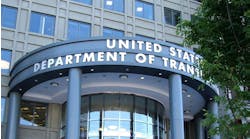In an effort to understand the current forces working for and against truck drivers' chances of safely arriving at their destination, the Federal Motor Carrier Safety Administration announced a request for information concerning its Large Truck Crash Causal Factors Study (LTCCS), posted on the Federal Register site.
The agency is “seek[ing] information on how best to balance sample representativeness, comprehensive data sources, ranges of crash types, and cost efficiency.”
Comments suggesting how the researchers should undertake the study must be received by March 16, 2020. The docket ID is FMCSA-2019-0277. Online instructions can be found at regulations.gov.
The study’s overall purpose is to enhance the FMSCA and state partners’ ability to:
- Evaluate crashes involving large trucks and identify emerging trends;
- Monitor crash trends and identify causes and contributing factors; and
- Develop effective safety improvement policies and programs.
A previous LTCCS was undertaken from 2001-2003, investigating more than 1,000 variables per crash involving a commercial vehicle with 10,000-plus gross weight rating and one fatality or evident injury. The report was released in March 2006 and covered elements such as crash scene description and weather, cause of crash, equipment condition, and driver physical factors and familiarity with the route.
A primary finding was that in the “vast majority” of instances, blame was incorrectly placed on the truck, when it should have been “attributed to a driver-related action or inaction.”
The FMCSA acknowledged in the recent request that trucks have evolved, and telematics systems can offer new insights via the data generated on speeding, lane departure, and hard braking.
“In the more than 15 years since the original study, many changes in technology, vehicle safety, driver behavior and roadway design have occurred that affect how a driver performs,” according to the report, undersigned by acting administrator Jim Mullen.
These include positive and negative influences wrought by the proliferation of new technology.
The report cited a “dramatic increase in distraction caused by cell phones and texting, the level of driver restraint use, the advent of in-cab navigation and fleet management systems, as well as equipment designed to enhance safety, such as automatic emergency braking (AEB) systems.”
The study also noted that fatal crashes hit their lowest point in 2009 (2,893), six years after the study concluded. The reason for that could perhaps be less about fleets acting on report data and more about far fewer trucks on the road. That year the economy crashed hard, resulting in a lifeless GDP of -2.5%.
Since then, the number of fatal crashes involving at least one large truck rose to 4,415 in 2018, an increase of 52.6%. The GDP was back to a healthy 2.9%.
From 2016 to 2018, fatal crashes rose 5.7%, despite the FMSCA putting into effect the electronic logging device (ELD) mandate that digitally records driver on/off time to comply with Hours-of-Service regulations. The theory is that ensuring drivers take scheduled breaks would result in well-rested, safer drivers. The FMSCA ELD site estimated ELDs would prevent 1,844 crashes annually and save 26 lives.
It has been no secret that many fleets detest te regulation, which went into full effect at the end of 2019. Full compliance was expected to cost the industry $1.5 billion overall, or an annual cost of $495 per truck. The FMCSA projected a net benefit of $1 billion in time saved on filing paperwork.
“About 52 people each year die from wasp and bee stings,” Les Willis, who operated a fleet of seven trucks, told Fleet Owner in 2017. “The FMCSA projects 26 lives saved. To prevent those deaths, the trucking industry needs to spend $1.5 billion. Is this even fiscally responsible?”
The new study hopes to better answer that question, and wants the public, industry experts and academics to help answer these:
- Should FMCSA pursue a nationally representative sampling approach or can convenience sampling serve the needs?
- What type of study are you recommending (e.g., nationally representative vs. convenience sampling), and what are the pros and cons of this approach?
- How important is it for the new study results to be comparable with findings of the original LTCCS?
- What other sources of data can enrich the new study? How can they be identified and included?




